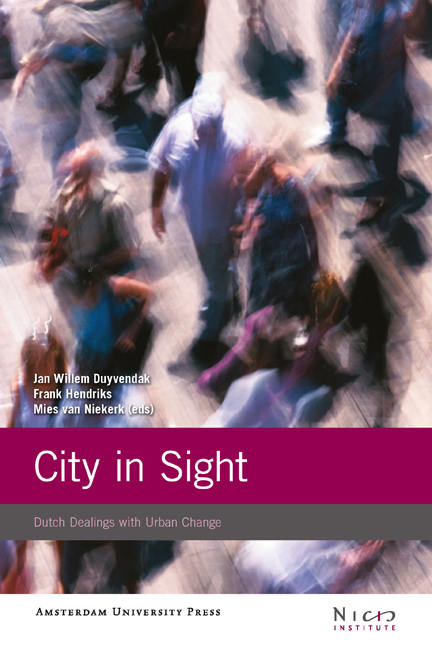Book contents
- Frontmatter
- Contents
- Acknowledgements
- Cities in Sight, Inside Cities: An Introduction 9
- Part I Urban Transformations and Local Settings
- Part II Urban Citizenship and Civic Life
- Part III Urban Governance and Professional Politics
- The Dutch Orange and the Big Apple: A Comparative Commentary
- References
- Notes on Contributors
- Index
9 - Changing Urban Networks and Gossip: Moroccan Migrant Women’s Networks in the Dutch Welfare State
Published online by Cambridge University Press: 19 January 2021
- Frontmatter
- Contents
- Acknowledgements
- Cities in Sight, Inside Cities: An Introduction 9
- Part I Urban Transformations and Local Settings
- Part II Urban Citizenship and Civic Life
- Part III Urban Governance and Professional Politics
- The Dutch Orange and the Big Apple: A Comparative Commentary
- References
- Notes on Contributors
- Index
Summary
Introduction
Moroccan migrant women in the Netherlands are the objects of heated debate. Their emancipation and social mobility has been the concern of politicians and policy makers for years now and their lives and practices the object of many policy interventions. The social networks of Moroccan migrant women (first generation, that is to say, women that themselves migrated to the Netherlands) often appear in discussions on their social position. On the one hand, many worry that Moroccan women are isolated, on the other, the ties of Moroccan migrants are supposedly many but bonding and restraining. The precarious position of Moroccan women is often perceived as a problem, but the social mobility of Moroccan second-generation women is often praised. Policy interventions are legitimized because of the perceived lack of autonomy of Moroccan women, but when ‘youth at risk’ are to be disciplined, policy makers look at Moroccan mothers to set their sons straight (see Van den Berg, 2007).
Although these are obviously very contradictory images, there is some truth (or potential) in all of them. Moroccan migrant women do generally have relatively precarious social positions. Many women who migrated to the Netherlands from Morocco to either follow their husband (who already migrated for employment) in the 1970s or marry a Moroccan Dutch man in the decades thereafter (De Mas, 2001), have received little education, relatively often are dependent on income support, due to gender inequality in many families are very dependent on their husband and their husband's family, and live in the cities’ and smaller municipalities’ poorer areas (see Pels & De Gruyter 2004; NGR 2005; SCP 2006).
In this chapter, I argue that because of these positions, poor Moroccan migrant women are very dependent on support networks for survival and the produced gossip in these networks. Looking through the prism of gossip allows for a better understanding of the social networks of migrants that traveled not only between countries, but also from rural to urban areas. By focusing on gossip, this article is embedded in the tradition of urban sociology and urban anthropology in which ‘talk’ and the social rules on which ‘talk’ is based, and which derive from it, are the central objects of study in order to uncover social networks, conflict and norms (see Elias & Scotson 1965; Bergmann 1993).
- Type
- Chapter
- Information
- City in SightDutch Dealings with Urban Change, pp. 173 - 188Publisher: Amsterdam University PressPrint publication year: 2009
- 1
- Cited by



